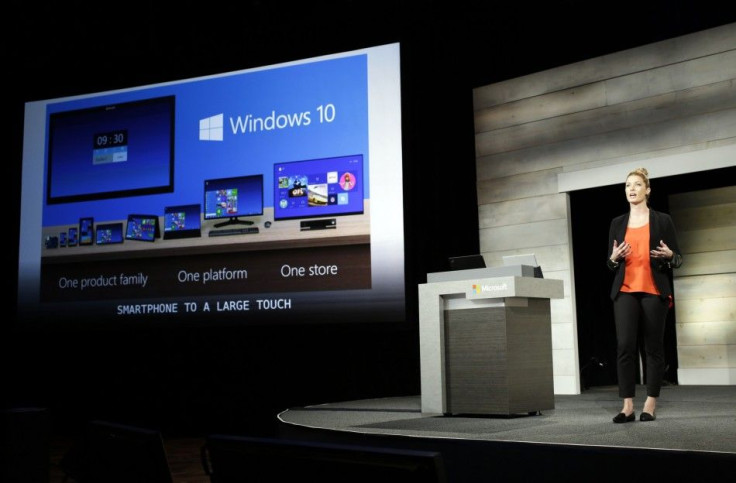6 Ways Windows 10 2015 Summer Release Date Will Propel Microsoft Back To Relevance

Microsoft is pushing for a summer 2015 release date for the significantly revamped and redesigned Windows 10, a new report said, with the software likely debuting first on key markets like the United States and China. Current Windows 7 and 9 users are also to simultaneously get the new operating system as free upgrade.
So launch time for the next Windows version will coincide with the vacation period for most students worldwide, The Verge has reported. “Windows 10 will be available this summer in 190 countries and 111 languages,” the tech site reported Microsoft Windows head Terry Myerson as saying.
With the Windows 10 rollout date virtually confirmed, Microsoft is gearing up to become relevant anew following years of struggling amidst the Apple (iOS and OS X) and Google (Android) duopoly. And basing on numerous reports, there are six ways that the software maker will regain its former stature. That would be largely due to the upcoming Windows feature upgrades briefly discussed below:
Password-free computing
Conventional and mobile computing will be likely password-free in time for the Windows 10’s commercial availability. The software is said to fully support the Fast Online Identity or FIDO security standard. Emphasis of the system is the ultimate leap from code-centric authentication to that of biometrics, according to ZDNet, adding that devices on the platform can face, voice, iris and fingerprint recognitions provided the available hardware, that would be sensors, come on board.
For users, this would mean more secure but hassle-free, as complex password combinations will be no longer necessary, computing. The same report noted that both online and application activities will be protected by the robust FIDO protocol that will come embedded with Windows 10.
Internet Explorer takes the backseat
It has been widely reported that Microsoft is sending the Internet Explorer or IE to retirement to make way for a new and better browser that codenamed for now as Project Spartan. But the news is not entirely true, Business Insider said, because IE will remain available and will come packed with the new Windows build.
But IE will cease its role as Microsoft’s core browser offering as that role will be reserved to Spartan, which according to Business Insider will take on a more formal name come the Windows 10 actual arrival a few months from now. IE will become a legacy browser, Microsoft said.
Multi-platform deployment for Cortana
Microsoft’s digital assistant Cortana has been making Siri and other rivals look and to be sure Microsoft will leverage on this by deploying the smart app on PC, tablet and smartphones. And thanks to Project Spartan, in which Cortana will be integrated, net surfing will jump into a new level, BGR said in a new report.
Lean and mean
To prove that Windows 10 is vastly different from its older siblings, the software has been totally rewritten that it will require less space on a device where it is installed. This translates to one or two of gigabytes savings on internal memory, which is especially helpful for the ageing mobile devices but still compatible with the software. It is expected, however, that the software will be more powerful than its predecessors despite the reduced footprint.
Easier and faster update procedure
One crucial component of any software is the update part, normally fraught with issues like fragmentation and crawling patch issuance. To solve this, according to BGR, Microsoft is looking on the possibility of upgrade dispatches that mirror that of the peer-to-peer system. So with the Windows 10 update behaving in torrent-like environment, it is expected that the once a month process will occur in a superfast fashion and hopefully, glitch-free.
Start menu, finally
Lastly, Windows 10 will mark the return of the Start menu. It is said that the lack of this very important tool, serving as quick launcher for applications among its numerous functions, prompted old Windows users to skip Windows 8 and make do with Windows 7 or older versions.
With the Start menu packed with the Windows 10 release date, and likely to stay for good, the chance is high that Microsoft will regain its old footing. And that should give the company the fang for a more interesting slugfest against Apple and Google.
To report problems or leave feedback on this article, email: r.pineda@ibtimes.com.au.





















